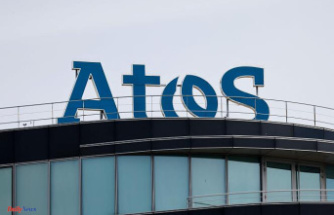The current gas supply stop through the Nord Stream 1 pipeline sends the euro plummeting. Europe's common currency hasn't been worth that much since 2002. The energy crisis is also weighing on the stock markets.
The euro has fallen to a new multi-year low against the US dollar. The European common currency fell to just 0.9884 dollars for one euro to its lowest level since December 2002. That is 0.7 percent less than on Sunday.
Since the beginning of the year, when it was still around $1.13, the euro has lost more than 11 percent in value. In the past year, the course was at times more than 1.20 dollars. The reasons for the exchange rate loss include the energy crisis in Europe and currently the discontinued flow of gas through the Nord Stream 1 pipeline. Other European currencies such as the pound sterling are also under pressure.
Russian gas giant Gazprom has suspended gas supplies to Germany through Nord Stream indefinitely. The delivery stop, which began on Wednesday, was initially justified by regular maintenance work on a compressor station and was supposed to last until Saturday. On Friday evening, Gazprom then announced that there was an oil leak from a turbine.
As of Monday morning, gas was still not flowing through the pipeline, according to the website of the European Network for Gas Utilities Transmission Systems (Entsog). The turbine manufacturer Siemens Energy described the cessation of pipeline operations as incomprehensible from a technical point of view.
According to the first data from the morning, the extended gas supply stop from Russia had a negative effect on various European exchanges. The DAX lost 2.86 percent in the morning to 12,677.59 points. On Friday, the great relief after the latest US job market report lifted the leading German index above the 13,000 point mark.
At the start of trading, the European gas price shot up by a good 30 percent to EUR 272 per megawatt hour and was heading back towards the most recent record high. On August 26, speculation about a delivery stop from Russia had even pushed it briefly to almost $350.
On Friday it had fallen by more than 12 percent because Gazprom announced that it would resume deliveries on Saturday morning as planned. When the Russian gas company said later on Friday that delivery by Nord Stream 1 would be stopped until further notice due to a leak that had been discovered, gas trading had already ended.












